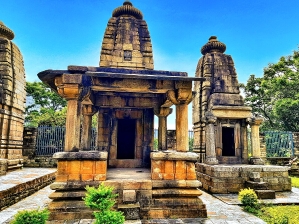
The first Christian charged under Uttarakhand state, India’s “anti-conversion” law has become the first to be acquitted under the statute, sources said.
After a four-year legal battle, Judicial Magistrate Anju (who uses only one name) of the Ramnagar Court in Nainital District delivered the acquittal order on Sept. 17, clearing Pastor Nandan Singh, also named as Narendra Singh and popularly known as Pastor Nandan Singh Bisht, of all charges under Sections 3 and 5 of the Uttarakhand Religious Freedom Act, 2018.
“It was the first such acquittal since the legislation came into force in 2018,” said Rajesh Kumar, a friend of Pastor Bisht. “Pastor Bisht was the first Christian arrested in Uttarakhand under the law four years ago.”
The pastor’s legal ordeal began on Oct. 2, 2021, when he and about 25 Christians had gathered for an all-night prayer at his rented house. About 30-35 Hindus, mainly from nearby villages, barged into his home at about 10 a.m.
“They tore all the posters with Bible verses, four Bibles, threw all our song books, broke all the things inside the prayer hall,” Pastor Bisht told Morning Star News. “They slapped me twice and asked me, ‘You are a Thakore [by Hindu caste], why are you converting people?’”
Instead of arresting the assailants, police detained Pastor Bisht, his wife and 3-year-old daughter, taking them to the Ramnagar Police Station, where officers registered a case based on a written complaint by Jagdish Chandra.
Chandra alleged that Pastor Bisht, living in Baida Jhal village with his wife Tripti Bisht and daughter Aradhana, was attempting to convert poor people and members of Scheduled Caste and Scheduled Tribe communities to Christianity. He claimed the pastor had been conducting evening prayer meetings for approximately six months and was offering allurements to local residents to embrace Christianity.
The complaint also stated that villagers demanding identification discovered Pastor Bisht possessed multiple address documents.
Police registered a case under First Information Report No. 567 dated Oct. 2, 2021, and turned the detention into arrest. They let his wife and child go. Bisht appeared before the magistrate the following day and was sent to Haldwani jail.
“I spent one day at the police station and seven days in the jail before I was granted bail,” Pastor Bisht told Morning Star News.
Sub-Inspector Narendra Kumar investigated the case and filed a charge sheet, and the court took formal cognizance on Nov. 12, 2021. Nearly two years passed before formal charges were filed on Sept. 12, 2023. The pastor denied all allegations and demanded a full trial.
Trauma
Through four long years of trial, Pastor Bisht cannot recount all that he lost.
“My wife was four months pregnant when I was arrested,” he told Morning Star News. “I couldn’t give her proper care, and because of all the stress and tension of my arrest and case, we lost our baby.”
His friend Rajesh Kumar, who stood by him throughout his legal struggle, said the case took a heavy toll on the pastor.
“Despite the absence of any victim or concrete evidence of illegal conversion activities, Bisht spent eight days in custody and endured nearly four years of legal proceedings before being cleared,” he said. “Bisht couldn’t continue his church fellowship during this time. He could not take up a job because he had to present himself in court once or twice a month. Besides, nobody gives you a job when they know you are under trial for a crime. He and his family faced severe social stigma all these years.”
There were times when Pastor Bisht did not have finances to travel to court and back.
“Though it is fearful to look back at the tough times we have been through as a family,” he said, he wanted to thank God that “He was always faithful and sustained my family needs. This is the result of answered prayers.”
Broader Implications
This acquittal represents a landmark moment for religious freedom in Uttarakhand. The detailed reasoning in the 16-page judgment provides important precedents regarding the standing requirement under Section 4 and the necessity of identifying specific aggrieved persons in conversion cases.
The court’s emphasis on constitutional protections for religious practice and the requirement for concrete evidence rather than mere suspicion sets an important standard.
“The judgment makes clear that practicing one’s faith, including holding prayer gatherings, does not automatically constitute illegal conversion activity under the law,” said Rajesh Kumar.
For Pastor Bisht and his family, the acquittal brings an end to years of legal uncertainty and social stigma. For the broader Christian community in Uttarakhand, it offers hope that the judiciary will scrutinize prosecutions under anti-conversion laws and protect genuine religious freedom while preventing misuse of these controversial statutes.
Prosecution
The prosecution presented six witnesses during the trial: complainant Chandra, Mohan Singh Patwal (a retired army subedar), Yashapal Singh, Virendra Singh Adhikari, village chief Amir Hussain and investigating officer Sub-Inspector Narendra Kumar.
Documentary evidence included the written complaint, arrest memo, site plan, charge sheet, FIR and General Diary report.
Chandra testified about visiting Pastor Bisht’s rented residence along with village officials and claimed to have seen a large picture of Christ hanging on the wall. During cross-examination, however, he admitted that his information about alleged allurements came from Patwal rather than his own observation, making him an indirect witness without firsthand knowledge.
The trial commenced with evidence presentation on Oct. 11, 2023. Pastor Bisht’s statement was recorded this year under Section 313 of the Criminal Procedure Code on June 19, in which he denied all charges, calling them false and alleging wrong investigation. The court reserved judgment on Sept. 9, and delivered its verdict eight days later.
During cross-examination, prosecution witnesses made statements that undermined the case against Pastor Bisht, said his attorney, whose name is withheld for security reasons. Patwal testified that he had no information about when or how any person’s religious conversion occurred and clarified that he never informed police that anyone asked anyone to leave Hinduism, as such an incident never occurred in his presence. He acknowledged seeing a picture of Christ in Pastor Bisht’s room and that police seized photographs, books and a music system, but could not identify any specific victim of conversion, the attorney said.
Yashapal Singh, the third witness, failed to name any specific person who had been converted or offered allurements during his testimony.
Adhikari stated that he never converted from his religion, nor was he or any of his relatives ever induced by anyone to convert. He added that to his knowledge, other witnesses including Jagdish Joshi, Patwal and Yashapal Singh never changed their religion.
Amir Hussain, who served as village chief of Baida Jhal from 2019 to 2024, provided testimony that contradicted the prosecution’s core allegations, the attorney said. During cross-examination, Hussain stated that in his presence, no person ever tried to induce anyone to leave Hinduism, and that neither he nor his relatives experienced any conversion attempts. He confirmed that no one tried to induce other named witnesses to convert.
Investigating Officer’s Testimony
Sub-Inspector Kumar’s testimony revealed significant gaps in the investigation, according to the court order.
During cross-examination, Narendra Kumar acknowledged that Joshi was not an aggrieved person who was personally given any allurement, the order noted. The sub-inspector admitted he did not seek court permission before beginning his investigation, and that neither the complainant nor any other person filed any complaint regarding actual conversion during his investigation, the attorney said.
The order mentioned that the sub-inspector acknowledged that no materials were recovered from the accused and stated he was not a religious expert and had not consulted any religious scholars about Hindu or Christian religious practices.
Court’s Legal Analysis
Section 3 of the Uttarakhand Religious Freedom Act prohibits converting or attempting to convert any person from one religion to another by misrepresentation, force, undue influence, coercion, allurement, fraudulent means or marriage.
Section 4 specifies who may file complaints in such cases. The aggrieved person or their parents or siblings may complain to the court. Where the aggrieved person or their siblings are under 18 years old or are unable to make a complaint due to sickness or infirmity, some other person related by blood, marriage, or adoption may file a complaint with the court’s leave.
Section 5 prescribes punishment ranging from one to five years imprisonment with fine. The punishment increases to two to seven years for offenses involving minors, women, or persons belonging to Scheduled Castes or Scheduled Tribes.
The court examined whether the complainant had legal standing to file the case. The judgment noted that Jagdish Chandra was neither an aggrieved person forced or lured to convert nor a close family member of any such person. The complainant’s written statement did not name any specific aggrieved person under force or allurement to convert, nor did it explain any relationship with such a person.
The court observed that for conviction under the law, the prosecution must establish that conversion occurred through pressure, inducement, threat, misrepresentation, allurement, marriage, conspiracy, or abatement. The burden of proof rested on the prosecution.
Evidentiary Failures
The court found multiple critical failures in the prosecution’s case, the attorney said.
The complainant’s written statement mentioned Pastor Bisht was propagating Christianity but provided no specific incident, date, or time when he allegedly offered allurements to anyone. The court found that facts were embellished before the court with the intention of filling gaps in the prosecution’s case, the attorney said.
The court examined the constitutional dimension of religious practice. Article 25 of the Indian Constitution guarantees the right to freely profess, practice and propagate religion. The judgment stated that conducting religious prayers constitutes an individual’s personal freedom regarding how they practice their faith and does not automatically constitute inducement for conversion under Section 3.
“Witness after witness testified during cross-examination that neither they nor their relatives had experienced conversion or inducement for conversion,” Pastor Bisht’s attorney told Morning Star News. “The court noted that the prosecution failed to establish when and how Bisht allegedly induced any person for conversion. No materials supporting conversion activities were recovered despite claims in the initial complaint about conversion literature.”
Judgment and Acquittal
After examining all evidence and legal arguments, Magistrate Anju concluded that the complainant lacked legal standing to file the case under Section 4 of the Act, as the prosecution failed to identify any aggrieved person or establish the complainant’s relationship to any such person. Chandra was deemed a “hearsay witness” whose information came secondhand from Patwal.
The court found the prosecution failed to prove its case beyond reasonable doubt, stating that the evidence did not establish that Pastor Bisht converted anyone or attempted to do so through prohibited means. The order emphasized that conducting religious prayers represents the accused’s personal religious freedom and does not constitute inducement for conversion under Section 3.
Magistrate Anju ordered Pastor Bisht’s complete acquittal from all charges under Sections 3 and 5 of the Uttarakhand Religious Freedom Act, 2018. The court canceled his bail bonds and discharged his sureties from all obligations. The bail bonds were ordered to remain in force for six months to allow time for any appeal, after which they would automatically stand canceled if no appeal was filed.
Christian support organization Open Doors ranks India 11th on its 2025 World Watch List of countries where Christians face the most severe persecution. India stood at 31st place in 2013 but has steadily fallen in the rankings since Narendra Modi came to power as prime minister.
Religious rights advocates blame the increasingly hostile rhetoric of the National Democratic Alliance government, led by the Hindu nationalist Bharatiya Janata Party, which they say has emboldened Hindu extremists in India since Modi took power in May 2014.






